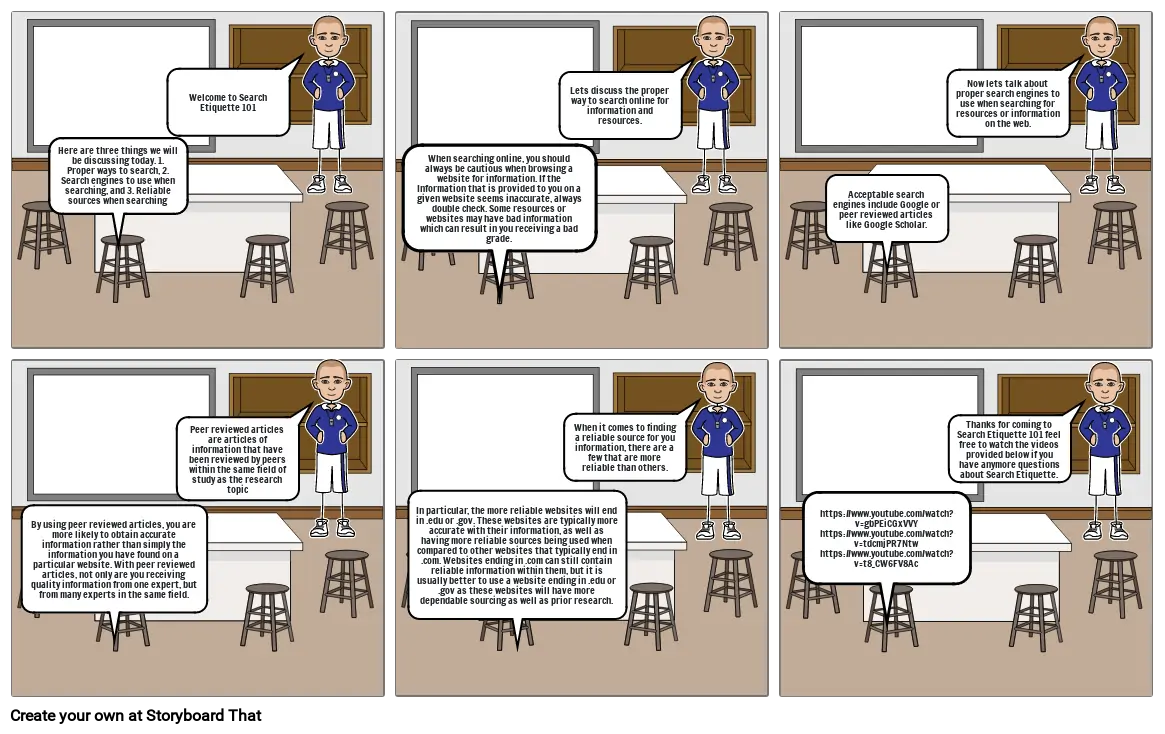Unknown Story

Storyboard Text
- Here are three things we will be discussing today. 1. Proper ways to search, 2. Search engines to use when searching, and 3. Reliable sources when searching
- Welcome to Search Etiquette 101
- When searching online, you should always be cautious when browsing a website for information. If the Information that is provided to you on a given website seems inaccurate, always double check. Some resources or websites may have bad information which can result in you receiving a bad grade.
- Lets discuss the proper way to search online for information and resources.
- Acceptable search engines include Google or peer reviewed articles like Google Scholar.
- Now lets talk about proper search engines to use when searching for resources or information on the web.
- By using peer reviewed articles, you are more likely to obtain accurate information rather than simply the information you have found on a particular website. With peer reviewed articles, not only are you receiving quality information from one expert, but from many experts in the same field.
- Peer reviewed articles are articles of information that have been reviewed by peers within the same field of study as the research topic
- In particular, the more reliable websites will end in .edu or .gov. These websites are typically more accurate with their information, as well as having more reliable sources being used when compared to other websites that typically end in .com. Websites ending in .com can still contain reliable information within them, but it is usually better to use a website ending in .edu or .gov as these websites will have more dependable sourcing as well as prior research.
- When it comes to finding a reliable source for you information, there are a few that are more reliable than others.
- https://www.youtube.com/watch?v=gbPEiCGxVVYhttps://www.youtube.com/watch?v=tdcmjPR7Ntwhttps://www.youtube.com/watch?v=t8_CW6FV8Ac
- Thanks for coming to Search Etiquette 101 feel free to watch the videos provided below if you have anymore questions about Search Etiquette.
Over 30 Million Storyboards Created
No Downloads, No Credit Card, and No Login Needed to Try!
